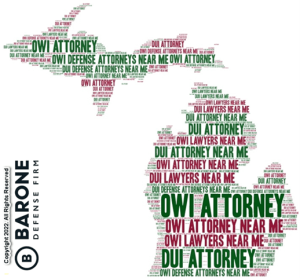Search
Drunk Driving Lawyer: DUI DWI OWI Defense Attorney Near Me
This page on DUI defense law in Michigan covers OWI charges for both misdemeanors and felonies. Typically, a DUI is not a felony in Michigan. However, regardless of the charge, you should seek help from the top DUI lawyers in the state.
Approximately 95% of all drunk driving convictions in Michigan are misdemeanors. A felony charge occurs on a 3rd lifetime DUI, not the 4th DUI within 10 years as in most other states. Even for a first offense OWI, it’s crucial to limit your search to an exceptionally good DUI lawyer near me.
How serious is driving while intoxicated? Being arrested for a drunk driving offense is an unexpected and often traumatic experience.
 Michigan Criminal Defense Lawyer Blog
Michigan Criminal Defense Lawyer Blog





